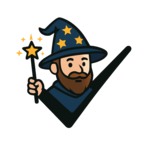Decode Your Downtime: A Friendly Guide to Mindful Hobby Selection
We live in a culture that often glorifies ‘busy’. Being constantly occupied is frequently seen as a badge of honor, a sign of productivity and success. But what about the spaces *between* the tasks? The moments when we aren’t working, running errands, or fulfilling obligations? That’s where downtime comes in, and how we choose to fill it is crucial for our well-being. Too often, we default to passive consumption – endless scrolling, binge-watching, or simply zoning out – which can leave us feeling depleted rather than refreshed. This guide is about reclaiming your downtime, not by eliminating it, but by filling it with activities that nourish your soul, challenge your mind, and contribute to a richer, more fulfilling life. We’ll explore the art of mindful hobby selection, helping you identify activities that truly resonate with you, and offer practical advice for incorporating them into your routine.
Why Hobbies Matter: Beyond Just Passing Time
Hobbies aren’t frivolous; they’re fundamental to a balanced life. They offer a multitude of benefits, extending far beyond simply occupying your free time. Let’s break down some key advantages:
- Stress Reduction: Engaging in a hobby you enjoy releases endorphins, natural mood boosters that counteract the effects of stress. The focused attention required by many hobbies also provides a welcome distraction from daily anxieties.
- Enhanced Creativity: Hobbies often require creative problem-solving, fostering innovation and expanding your imaginative capacity. Whether it’s painting, writing, coding, or cooking, hobbies provide a safe space to experiment and express yourself.
- Improved Mental Health: Hobbies can combat feelings of loneliness and isolation by providing opportunities for social connection (if you choose a group hobby) or a sense of purpose and accomplishment.
- Skill Development: Learning a new skill is incredibly empowering. Hobbies allow you to acquire knowledge and abilities outside of your professional realm, broadening your horizons and boosting your self-confidence.
- Increased Resilience: Facing challenges and overcoming obstacles within a hobby builds resilience, teaching you to persevere and adapt – skills that translate to all areas of your life.
- A Sense of Flow: Many hobbies facilitate a state of ‘flow’, where you become completely absorbed in the activity, losing track of time and experiencing a profound sense of enjoyment.
Ultimately, hobbies contribute to a greater sense of well-being and life satisfaction. They provide a counterbalance to the demands of modern life, allowing you to reconnect with yourself and cultivate a more meaningful existence.
The Self-Discovery Phase: Unearthing Your Interests
Before diving headfirst into a new hobby, it’s crucial to spend some time in self-reflection. What truly interests *you*? What activities have you always been curious about, but never had the time to explore? Here are some prompts to get you started:
- Childhood Dreams: What did you enjoy doing as a child? Often, our childhood passions provide valuable clues about our innate interests. Did you love building with LEGOs? Perhaps model making or woodworking would be a good fit. Did you enjoy drawing or painting? Explore different art forms.
- Forgotten Passions: Is there anything you used to enjoy but have since abandoned? Life often pulls us in different directions, leading us to shelve hobbies we once loved. Could you revisit one of those passions?
- Things You Envy: What activities do you admire in others? Do you wish you could play a musical instrument, speak a foreign language, or build furniture? Envy can be a powerful motivator.
- Areas of Curiosity: What topics do you find yourself reading about or watching documentaries on? Your intellectual interests can often be translated into hobbies.
- Values Alignment: What’s important to you? Do you value creativity, physical activity, social connection, or intellectual stimulation? Choose hobbies that align with your core values.
Don’t dismiss seemingly ‘silly’ or ‘unproductive’ interests. The goal isn’t to find a hobby that looks impressive to others; it’s to find something that brings *you* joy. Brainstorm a long list of possibilities, without censoring yourself. You can always narrow it down later.
Categorizing Your Options: A Hobby Landscape
To help you navigate the vast world of hobbies, let’s categorize them into a few broad groups:
- Creative Hobbies: These involve artistic expression and imagination. Examples include painting, drawing, sculpting, writing, music (playing an instrument, singing, composing), photography, digital art, crafting (knitting, crocheting, sewing, jewelry making), pottery, calligraphy, and creative writing.
- Physical Hobbies: These involve physical activity and promote fitness. Examples include hiking, running, swimming, cycling, yoga, martial arts, dancing, team sports (basketball, soccer, volleyball), rock climbing, and gardening.
- Intellectual Hobbies: These stimulate your mind and encourage learning. Examples include reading, learning a new language, coding, chess, puzzles (Sudoku, crosswords), astronomy, history, philosophy, and genealogy.
- Collecting Hobbies: These involve gathering and organizing items of interest. Examples include stamp collecting, coin collecting, antique collecting, book collecting, vinyl record collecting, and trading cards.
- Making & Building Hobbies: These involve creating something tangible with your hands. Examples include woodworking, metalworking, model building, DIY projects, home brewing, cooking, baking, and furniture restoration.
- Digital Hobbies: These leverage technology and the internet. Examples include blogging, podcasting, video editing, game development, web design, and digital photography.
This is just a starting point, of course. Many hobbies blur the lines between categories. The key is to find something that appeals to your unique interests and preferences.
The Experimentation Phase: Trying Things Out
Once you’ve identified a few potential hobbies, it’s time to experiment. Don’t commit to anything long-term until you’ve given it a try. Here’s how to approach the experimentation phase:
- Start Small: Don’t invest a lot of money or time upfront. Begin with a beginner’s kit, a single class, or a free online tutorial. A small investment reduces the pressure and allows you to explore without significant risk.
- Set Realistic Expectations: You won’t be an expert overnight. Embrace the learning process and don’t get discouraged by initial setbacks. Expect to make mistakes.
- Time Commitment: Start with a manageable time commitment. Even 15-30 minutes a few times a week can be enough to get a feel for a new hobby.
- Embrace Imperfection: Don’t strive for perfection. Focus on the enjoyment of the process, not the end result. Perfectionism can stifle creativity and motivation.
- Be Open to Surprises: You might discover that a hobby you thought you’d love isn’t a good fit, or that you enjoy something you never considered. Be open to unexpected outcomes.
Don’t be afraid to try a variety of hobbies before settling on one (or several!). The goal is to find activities that genuinely resonate with you. And remember, it’s okay to quit a hobby if it’s not bringing you joy.
Overcoming Common Obstacles
Life often throws obstacles in the way of pursuing hobbies. Here are some common challenges and how to overcome them:
- Lack of Time: This is the most common excuse. The key is to prioritize. Schedule hobby time into your calendar, just like you would any other important appointment. Even small pockets of time can make a difference. Consider time-blocking or the Pomodoro Technique.
- Lack of Money: Hobbies don’t have to be expensive. Many hobbies can be enjoyed on a budget. Look for free resources online, borrow materials from friends, or explore affordable options.
- Lack of Space: If space is limited, choose hobbies that don’t require a lot of room. Digital hobbies, writing, reading, and learning a language can all be enjoyed in a small space.
- Fear of Failure: Everyone starts somewhere. Don’t let the fear of not being good enough prevent you from trying something new. Focus on the learning process and celebrate your progress, no matter how small.
- Perfectionism: As mentioned earlier, perfectionism can be a major obstacle. Let go of the need to be perfect and focus on enjoying the process.
Integrating Hobbies into Your Routine
Once you’ve found a hobby you enjoy, the next step is to integrate it into your routine. Here are some tips:
- Schedule It: Treat hobby time as a non-negotiable appointment in your calendar.
- Create a Dedicated Space: If possible, designate a specific area for your hobby. This helps create a sense of routine and makes it easier to get started.
- Join a Community: Connecting with others who share your interests can provide motivation, support, and new ideas. Look for local clubs, online forums, or social media groups.
- Make It Accessible: Keep your hobby supplies readily available. If you have to spend a lot of time setting up, you’re less likely to follow through.
- Be Flexible: Life happens. Don’t beat yourself up if you miss a scheduled hobby session. Just get back on track as soon as possible.
Beyond Individual Pursuits: Social Hobbies and Connection
While solo hobbies offer valuable benefits, don’t underestimate the power of social hobbies. Joining a group or taking a class can provide opportunities for connection, collaboration, and learning from others. Consider:
- Team Sports: A great way to combine physical activity with social interaction.
- Book Clubs: A stimulating way to engage with literature and connect with fellow readers.
- Art Classes: Learn new skills and meet like-minded individuals.
- Music Groups: Join a choir, band, or orchestra.
- Volunteer Opportunities: Combine your interests with a desire to give back to your community.
The Ripple Effect: How Hobbies Impact Other Areas of Your Life
The benefits of hobbies extend far beyond the time you spend engaging in them. They can positively impact other areas of your life, such as your work, relationships, and overall well-being. A refreshed and engaged mind is a more productive and creative mind. A person who is fulfilled in their personal life is more likely to be happy and successful in their professional life. Hobbies are an investment in yourself, and the returns are immeasurable. For more information on optimizing your life, explore resources on smart home automation or behaviour design. Remember to revisit this guide, Decode Your Downtime, as your interests evolve.
Final Thoughts: Embrace the Journey
Finding the right hobbies is a journey, not a destination. Be patient with yourself, experiment freely, and embrace the process of self-discovery. Don’t be afraid to try new things, and don’t be discouraged if something doesn’t work out. The most important thing is to find activities that bring you joy, challenge your mind, and contribute to a more fulfilling life. Your downtime is valuable. Spend it wisely.


Discussion about this post